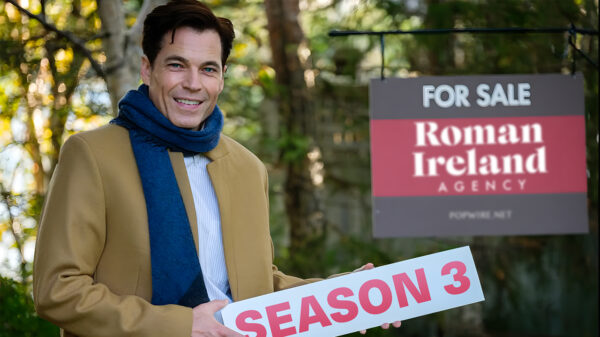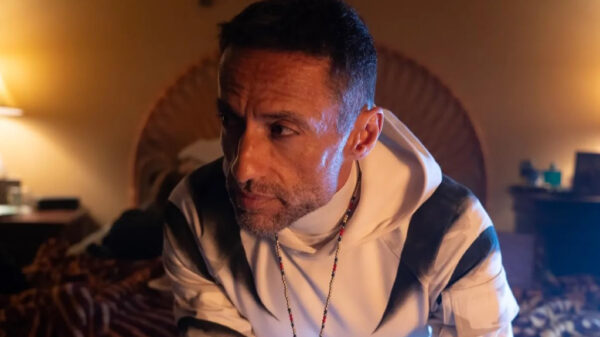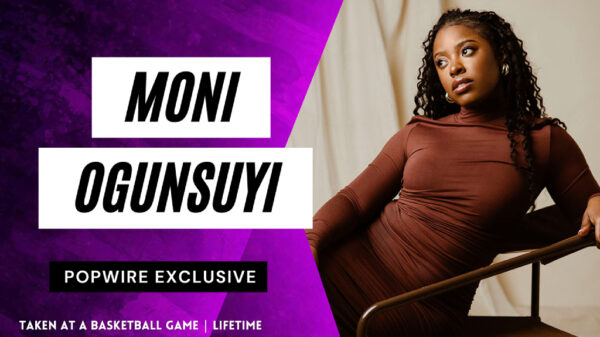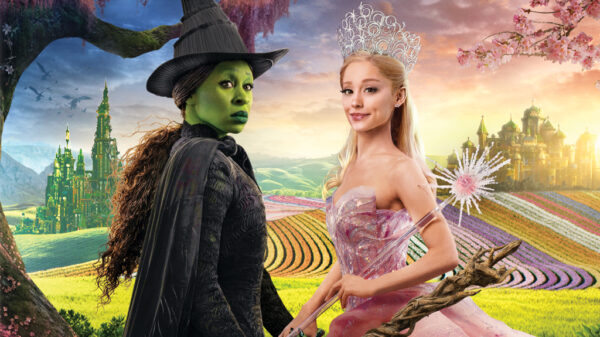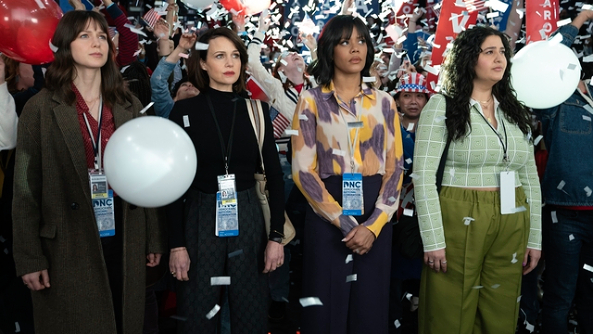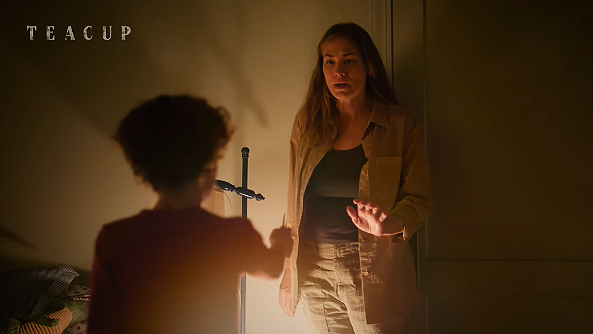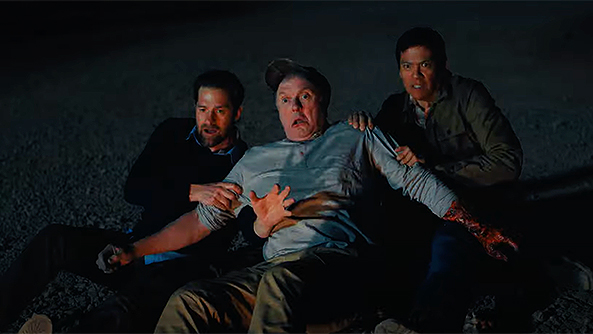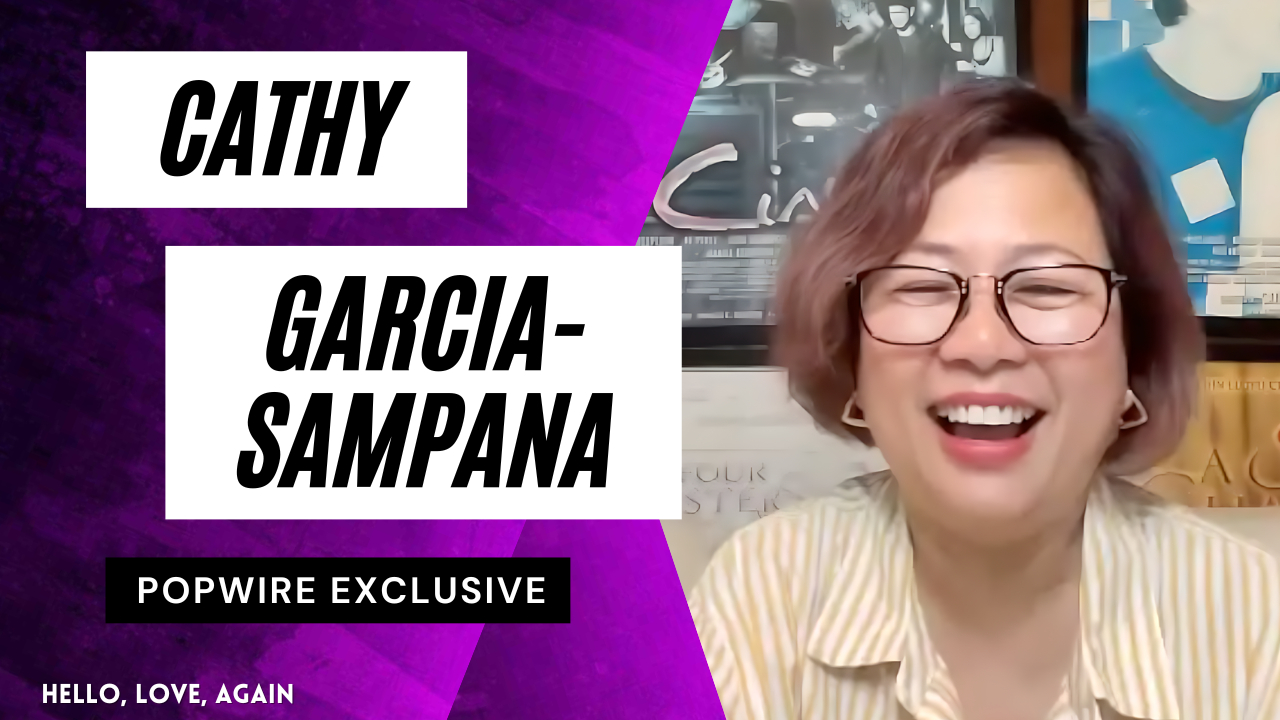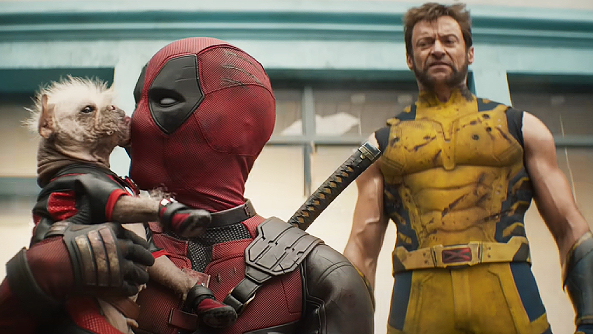I majored in Journalism in college. For the most part, I did so because I love writing and wanted to get school credit for doing so. But after five years of in depth courses examining the craft of reporting the truth, I was turned on to a whole new dimension to the world of journalism; it’s not just about putting words to paper/computer screens, it’s about being objective, covering every angle to the story and most importantly, telling the truth above all.
Many forms of media have attempted to capture the rush of great reporting, namely All the President’s Men, Best Picture winner Spotlight and HBO’s The Newsroom, and while those examples are all fantastic in their own ways, Max’s latest streaming series, The Girls On the Bus nails the modern issues and evolving landscape of journalism more than anything else.
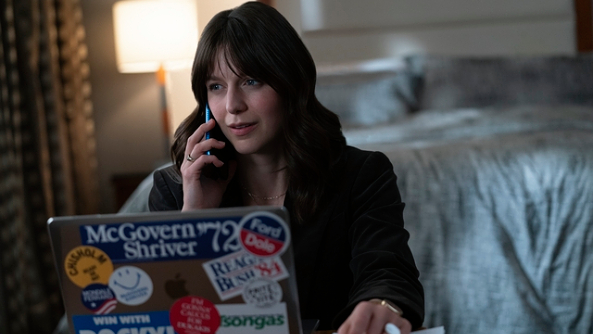
The pilot tells the story of Sadie McCarthy (Melissa Benoist of Supergirl fame), a promising, albeit personally involved in every story, reporter for a New York newspaper, assigned to cover the upcoming presidential campaign of Caroline Bennett (Joanna Gleason). Sadie’s editor urges her to be objective and leave her personal views out of her work, which has her on thin ice at the paper.
Sadie ends up in Iowa, competing with three other women in the field: Grace Gordon Greene (Carla Gugino), an old pal of Sadie’s, Kimberlyn Kendrick (Christina Elmore), a reporter for a controversial right wing network and Lola Rahaii (Natasha Behnam), a Gen Z Instagram savvy blogger. As the campaign heats up, all four women fight not only to out-scoop each other for the story of year, but prove their worth in a constantly escalating and evolving journey that may be too much to control.
The Girls On the Bus plays out like a modernized and feminist version of Lou Grant. Each of the four women here represent different sides of the spectrum of journalism, from the bushy tailed, but overeager Sadie to the constantly blogging and promoting Lola. The Girls not only represent diverse viewpoints all converging on one story, but somehow, they all come from the same place of fighting to prove that they’ve earned their seat at the table.
You’ll find yourself wanting Sadie to succeed, but at the same time, learn a lesson at the end of the day. She’s flawed, but in all the right ways, giving her a place to get to by the end. Kimberlyn starts off as a sympathetic character, but it’s only as the show goes on that we learn what drives her to do what she does at a dangerously too close to home fictional news network.
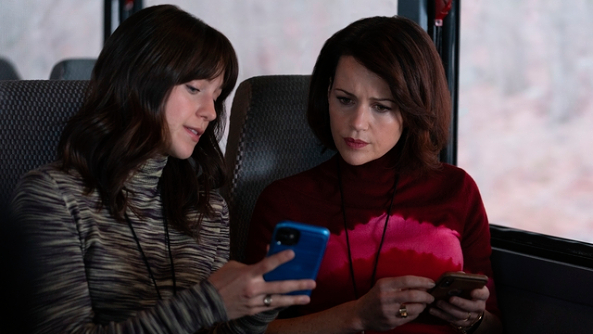
The series also captures the nitty gritty of what it takes to get the scoop. Rapid fire phone calls, literal races to the source of the story and overlays of news articles are pervasive here, but unlike other realistic takes on the field, this show is always fast paced and constantly surprising viewers with plot turns and compelling characters facing massive drama. It’s the kind of show that will make even Bob Woodward feel seen.
But what separates this show from its peers is how right-place-right-time the narrative is. In an era where truth is well buried, scandals are constant and the truth tellers are under attack, watching all of those themes happen in real time to women who you can’t help but root for is empowering and frustrating all at once. In the pilot, Lola’s public perception goes from crusading blogger to enemy of the people in the span of mere moments, an all too accurate summary of the media landscape today.
For a journalism student, The Girls On the Bus nails it. Every challenge, every nuance and every complexity of reporting is sandwiched into an entertaining series with compelling characters. And while the work these girls do may not be for everyone, the timely messages the show sends definitely are.
The Girls On the Bus is now streaming on Max.

